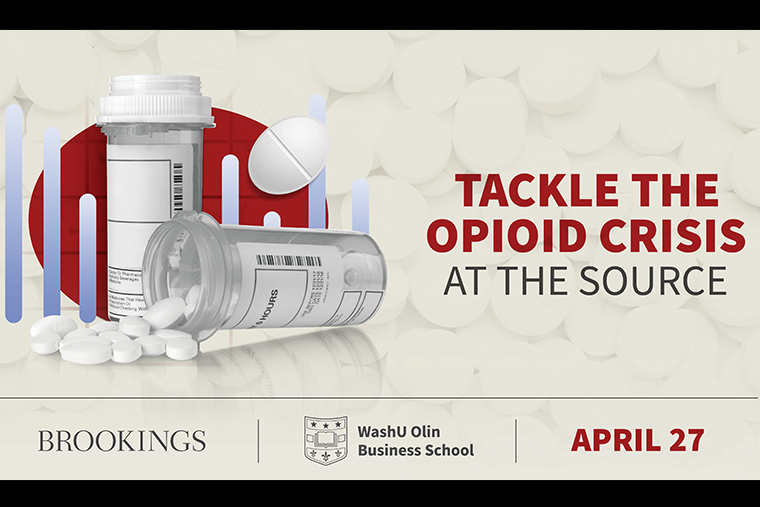What: Data scientists from Olin Business School at Washington University in St. Louis have developed a powerful machine learning tool capable of flagging suspicious transactions across 100 pharmaceuticals — with stunning accuracy — that can immediately take aim at curbing the country’s decadeslong opioid epidemic. Read more about the technology.
Who: Members of the inaugural Olin Brookings Commission, a partnership between Olin Business School and the Brookings Institution in Washington, D.C., supported by The Bellwether Foundation, will present the newly developed state-of-the-art technology along with suggested policies to facilitate its implementation to members of Congress, the U.S. Drug Enforcement Administration and pharmaceutical executives.
When: 10:30 a.m.–noon ET Wednesday, April 27
Where: Brookings Institution, Falk Auditorium, 1775 Massachusetts Ave., NW, Washington, D.C. The event also will be livestreamed.
IMPORTANT MEDIA GUIDELINES:
- A limited number of seats are available for media. Email Sara Savat to request access.
- To attend an event at the Brookings Institution, registered guests will need to provide proof of vaccination.
- The event also will be livestreamed. Preregistration is required. Register here for the virtual event.
- Commission chair Anthony Sardella, founder of software company evolve24 and senior research adviser at Olin’s Center for Analytics and Business Insights, will be available for interviews.
Why: In the past two decades, half a million people in the U.S. have died as a result of the opioid epidemic. Fueling this epidemic was an early wave of opioid transactions diverted from legitimate use, transactions that exploited chronic blind spots in the distribution supply chain.
In July, the states reached a $26 billion settlement with the country’s three major drug distributers and pharmaceutical giant Johnson & Johnson for their roles in the epidemic. The DEA and drug distributors are seeking a proactive way to flag and halt suspicious orders of opioid drugs.
This newly developed, state-of-the-art technology has the power to bring stakeholders and information together to break down silos and enable action.




Comments and respectful dialogue are encouraged, but content will be moderated. Please, no personal attacks, obscenity or profanity, selling of commercial products, or endorsements of political candidates or positions. We reserve the right to remove any inappropriate comments. We also cannot address individual medical concerns or provide medical advice in this forum.